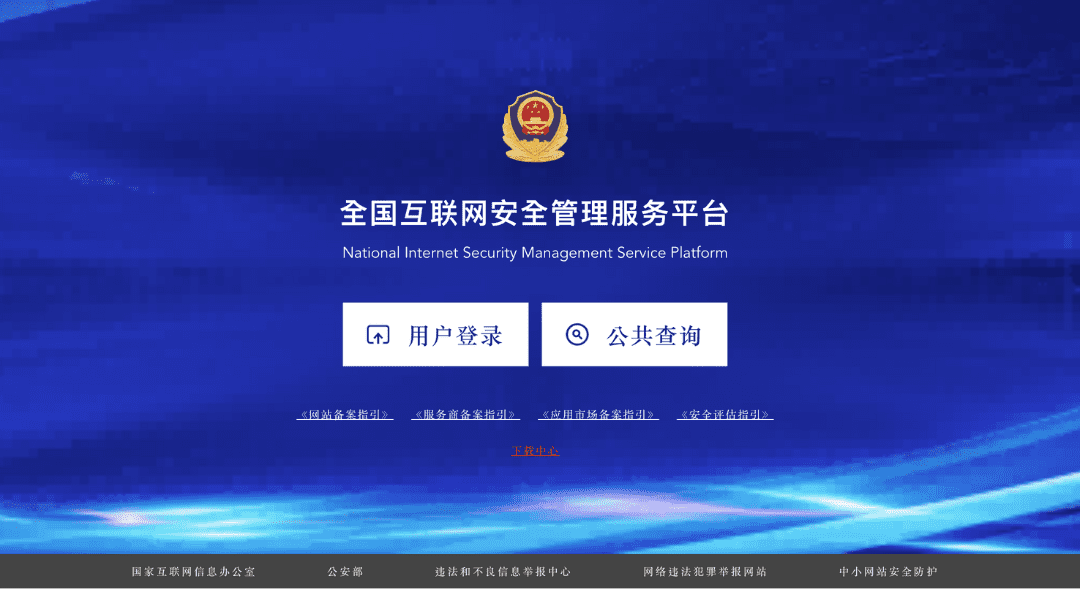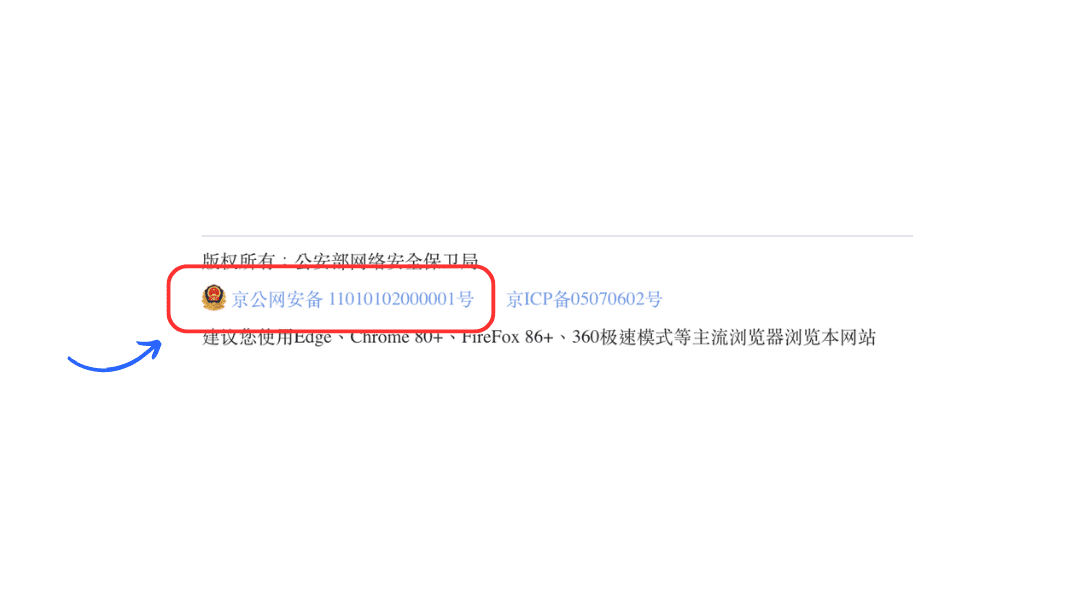1 - Expected post-Chinafy results
PSB Filing in China: What is it, and Do You Need it?
If you’re expanding your business to China or considering options to get your website working there, you may have come across the need for PSB filing.
But how does this document relate to your website?
TL;DR if you’re hosting inside Mainland China, you need a PSB filing. If you’re hosting offshore, you don’t. It’s important to differentiate regulatory requirements from the web performance aspects of making your website run faster and fully for users in China. Wherever your website is hosted, PSB filing will not resolve site performance issues.
In this article, we’ll cover what PSB filing is, how it differs from an ICP license, and whether or not your website requires one for it to be accessible in China.
What is PSB Filing?
PSB (Public Security Bureau) filing refers to the registration of websites with China’s Public Security Bureau, a regulatory body overseeing online content and data management.
If you’re hosting your website in China, the PSB filing (also known as PSB Bei'An or psb备案) is a mandatory requirement designed to ensure online content complies with local regulations and that website owners are identifiable to the authorities.
Websites that are hosted in China but have not completed PSB filing can be subject to penalties, fines, or shutdowns.
Before applying for PSB filing, you’ll first need to secure an ICP license (we’ll talk more about this in the application process).
Who needs a PSB Filing in China?
Any website that operates on a server within China and is accessible to the public must complete a PSB filing. This is particularly relevant for businesses that want to:
Host their website inside Mainland China: PSB filing is required for all websites on servers within China.
Comply with Chinese cybersecurity regulations: The PSB filing ensures that your site adheres to China's strict internet content and data security regulations.
If your business is planning to expand its digital presence in China with an onshore hosting provider or server, a PSB filing is necessary. This applies whether you're operating an e-commerce platform, an informational site, or even a corporate landing page.
For businesses opting to keep their site hosted outside of China, alternative solutions exist to improve performance for China visitors without requiring a PSB filing. We’ll delve into this later.
How to apply for a PSB Filing?
Here’s a simplified step-by-step process for applying for a PSB filing:
Obtain an ICP License: Before a website can be filed with the PSB, it must first obtain an ICP (Internet Content Provider) license. This is a separate approval from China’s Ministry of Industry and Information Technology (MIIT) and is required for all websites hosted on Chinese servers.
Prepare required documents: You will typically require documents to support your company, website, and website owner information. These include:
A business license or registration documents (this must be a Chinese entity)
Domain name registration, hosting details
An ICP number
The ID and contact information of the website manager
Access the Public Security Bureau platform: After securing your ICP license and readying your documents, you’ll need to register your website through the Public Security Bureau’s online platform. Fill out the required forms (website and business details) and upload the necessary documents.

https://beian.mps.gov.cn/
Verification: After submission, the authorities will review your application to ensure your website complies with China’s cybersecurity and content management laws. This typically takes 3-5 working days.
Display the registration number: Once approved, you will receive a PSB filing number, which you’ll need to display in the footer of your website, along with a clickable PSB logo that links back to your registration details on the government’s website.

Screenshot from https://beian.mps.gov.cn
Annual renewal and updates: If there are any changes to your website (such as a new domain name), you need to update these in the PSB system. You’ll also need to renew the filing each year by following the same process.
PSB Filing vs. ICP License: What’s the difference?
While PSB filing and the ICP license are often mentioned together, they serve different purposes and are handled by different authorities.
ICP License: This is issued by the MIIT and is a prerequisite for hosting a website in China. There are two types: a commercial ICP license (for e-commerce sites) and a non-commercial ICP filing (for content websites, blogs, and informational sites).
PSB Filing: Once you’ve obtained your ICP license, you need to file your site with the Public Security Bureau. The PSB filing is more focused on security and ensuring websites comply with China's content management regulations, whereas the ICP license is related to permissions to host and operate a website in the country.
In short, any website that is hosted on a server in China needs both an ICP license and a PSB filing to remain compliant.
Do you need a PSB Filing for your website in China?
Your need for a PSB filing largely depends on your hosting location:
Websites hosted in China: If you’ve made the decision to host your website on servers located in China, or the nature of your industry is such that this is mandatory (such as banking, pharmaceutical and other regulated industries) then you are required to complete the PSB filing. Without this, your website could face penalties or risk being taken down by Chinese authorities.
Websites hosted outside of China: If your website is hosted outside of Mainland China, PSB filing isn’t necessary. However, foreign-hosted websites often experience slow load times and content accessibility issues within China due to the Great Firewall.
This is where solutions like Chinafy come into play.
To be clear, Chinafy is a web optimization platform above the hosting (origin server) layer that optimizes websites for better performance and functionality for visitors in China. Chinafy uses best practices to handle resources that are blocked or slow either by means of replacement or removal. As it sits above the hosting layer, it does not re-host the website but is able to optimize an existing website whether it is hosted in or outside of China.
By using Chinafy, you can optimize your website for faster load times and better accessibility in China.
How Chinafy can help:
Chinafy’s technology works alongside your current infrastructure to accelerate load times and improve accessibility for users in China. It specifically targets and fixes incompatibilities such as blocked third-party resources by means of detecting, removing or replacing them based on best practices - all while using a near-China CDN for speed improvements.
If you’re opting to keep your website offshore rather than onshore (which requires an ICP license and PSB filing) Chinafy offers you the option of keeping your existing global site while optimizing it for users accessing it from a China IP address. Your site remains globally accessible, but now performs seamlessly for users in China.
If you’re hosting onshore, though, Chinafy can further optimize your site’s performance in China and we work with partners who can assist you with regulatory requirements if needed.
To sum up, if your website is hosted on a server in China, you need both an ICP license and a PSB filing to comply with Chinese regulations.
If your website can be hosted outside of China but you want to enhance its performance for visitors within the China region, Chinafy offers an all-in-one solution to ensure your site is fast, reliable and compliant.
For businesses looking to improve their website’s performance in China without dealing with the lengthy PSB filing process, Chinafy offers a simpler solution, ensuring your site remains accessible and fast for users in China without compromising global performance.
Get started with Chinafy to make your site work faster and fully in China.



1 - Expected post-Chinafy results






























